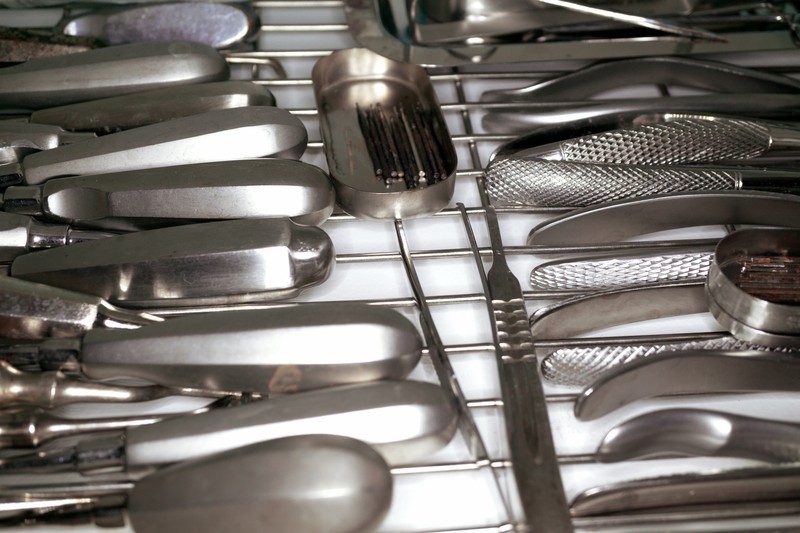A broken tooth or lost crown will absolutely ruin your day, and a cavity can become a major inconvenience if it progresses too far. Unfortunately, in a post-SHTF world, you may have to address these issues yourself. For the tools you'll need, read on.
The Survival Dental Kit
The prepared medic will have included dental supplies in their storage, but what exactly would make sense in austere settings? You would want the kit to be portable, so dentist chairs and other heavy equipment wouldn’t be practical. You would want it to be easily distinguished from the medical kit.
Items that would be practical for the survival “dentist” include:
• Dental floss, dental picks, toothbrushes, toothpaste or baking soda.
• Dental or orthodontic wax as used for braces. Wax can be used to splint a loose tooth to its neighbors.
• A Rubber bite block to keep the mouth open. This provides good visualization and protection from getting bitten.
• Cotton pellets, Cotton rolls, Q tips, gauze sponges (cut into small squares).
• Compressed air cans or a bulb syringe for drying up saliva on teeth.
• Commercial temporary filling material, such as Tempanol, Cavit, or Den-temp.
• Oil of cloves (eugenol), a natural anesthetic. Often found in commercial preparations such as:
Red Cross Toothache Medicine (85% eugenol)
Dent’s Toothache Drops (benzocaine in combo with eugenol)
It’s important to know that eugenol might burn the tongue, so be careful when touching anything but teeth with it.
• other oral analgesics like Hurricaine or Orajel (Benzocaine)
• Zinc oxide powder; when mixed with 2 drops of clove oil, it will harden into temporary filling cement.
• Spatula for mixing (a tongue depressor will do)
• A bulb syringe to blow air and dry teeth for better visualization, and as a diagnostic tool to elicit discomfort in damaged teeth. A can of compressed air may be an alternative.
• An irrigation syringe to flush areas upon which work is being done
• Scalpel #15 or #10 to incise and drain abscesses
• Dental probes, also called “explorers”.
• Dental tweezers
• Dental mirrors
• Dental scrapers/scalers to remove plaque and probe questionable areas.
• Spoon excavators. These instruments have a flat circular tip that is used to “excavate” decayed material from demineralized areas of a tooth. A powered dental drill would be a much better choice, but not likely to be an option off the grid.
• Elevators. These are thin but solid chisel-like instruments that help with extractions by separating ligaments that hold teeth in their sockets. #301 or #12B are good choices. In a pinch, some parts of a Swiss army knife might work.
• Extraction forceps. These are like pliers with curved ends. They come in versions specific to upper and lower teeth and, sometimes, left and right.
Although there are more types of dental extractors than there are teeth, you should at least have several. Although every dentist has their preferences, you should consider including the following in your dental kit:
-#151 or #79N for lower front teeth
-#150A or #150 for upper front teeth.
-#23, best for lower molars
-#53R, best for upper right molars
-#53L, best for upper left molars
Just the thought of going to the regular dentist makes most people feel faint. Now imagine having an untrained professional scraping away at your teeth or pulling your rotted out molar. Sounds like the very definition of Hell. Fortunately, you may never have to worry about any of this if you just take good care of your teeth now.
Make sure you stockpile plenty of mouthwash, toothbrushes, toothpaste, and floss so that you won't run out if the bug out world stretches into the long term. You'll thank yourself later.
This is a very helpful list, and hopefully, you can stockpile this stuff without ever having to use it. For more information on this topic, read the original article at Backdoor Survival.

A slice of ginger on an abcess will reduce swelling in 15 minutes.
Tooth issues are a very serious concern and can be potentially fatal. This should be a major prepping consideration.
Snakeroot is the best to pull the infection out
Apologies for asking, what is Snakeroot? Thanks.